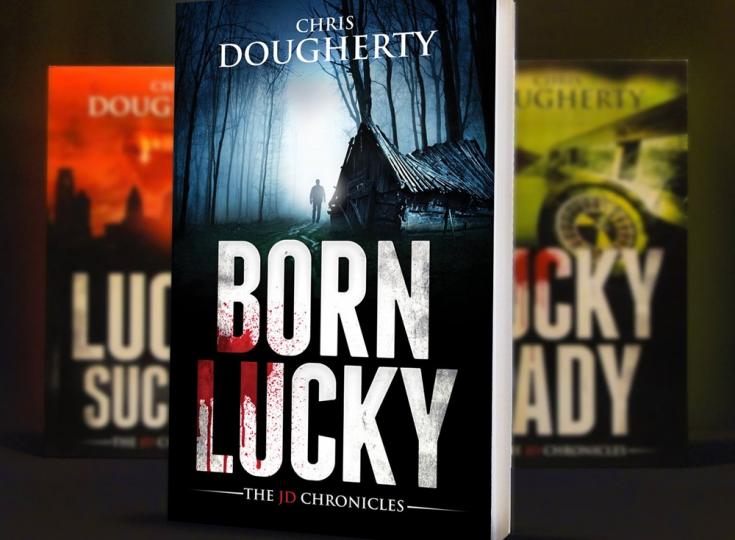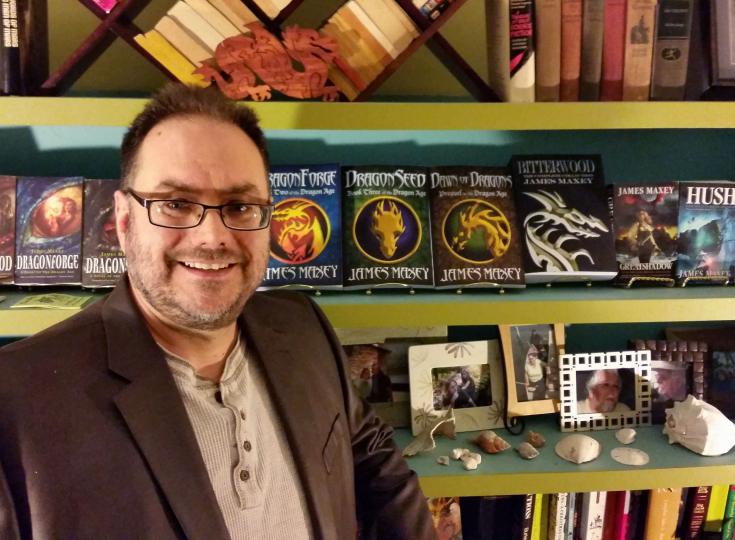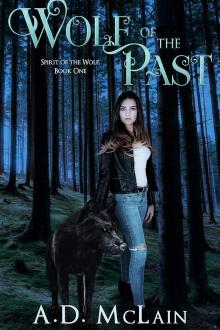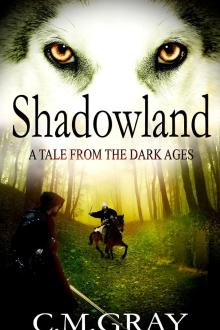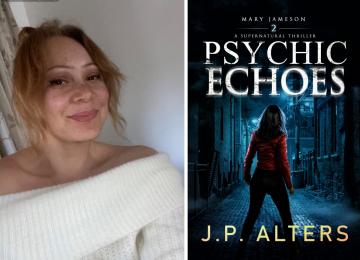Benjamin K. Hewett - Funny, Endearing Fantasy Adventure
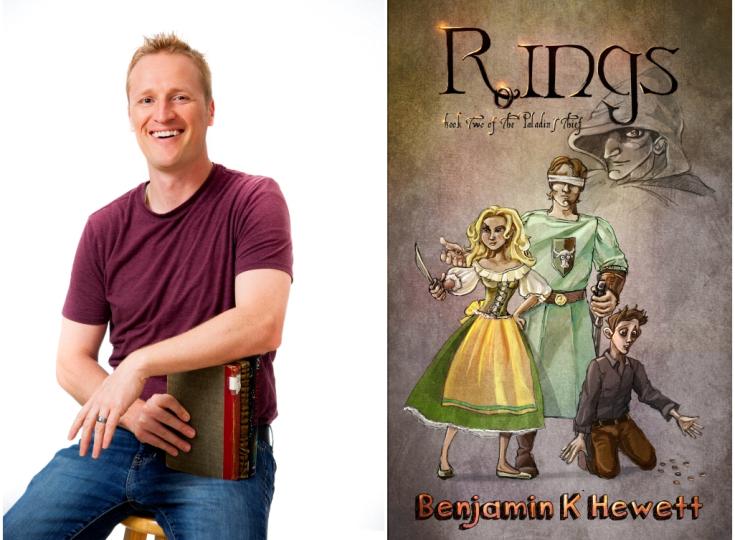
Benjamin K. Hewett lives in Houston and translates English into English for NASA. He also speaks French, mumbles German, and is slowly learning Arabic and Chinese. He is a Vera Hinckley Mayhew Award recipient, winner of the 2019 Marburg Award in Germany, and the author of several novels. In addition to writing, Ben enjoys spending time with his three kids, playing jazz piano, and juggling fire. He has a Bachelor of Arts in French, a Master of Public Administration, and was once a fourth-grade teacher. As our Author of the Day, he tells us all about his book, Rings.
Please give us a short introduction to what Rings is about.
RINGS is the story of Teacup, a thief trying to make a better life for his kids. He’s gotten behind the power curve, and now he makes a living acquiring objects that have value on the black market. One of those items is an assassin’s ring, which allows the wearer to tap into the memories and skills of its previous owner.
But it’s also a redemption story. Teacup lives in a world that expects darkness, but he brings light to those around him, even though he doesn’t always realize it. For example, in DARTS, he rescues a naïve, young paladin from the assassin’s guild. When you do that sort of thing, you make enemies.
RINGS is about fallout, the price you pay for helping the “wrong” person. It’s personal, it’s poignant, and the only way out for Teacup is by getting in too deep and following a trail of clues left by the ring’s previous owner.
What inspired you to write this story? Was there anything in particular that made you want to tackle this?
Oh man. Yeah. This idea came to me back in 2010 or 2011. I was at some NASA budget meetings and a bunch of the team decided to go out for drinks and darts at the end of the day. I don’t drink, but a couple of my coworkers convinced me to come out for the darts. One of the Space Shuttle Program directors was this darts hero and offered to teach me how to play cricket, which is one of the more common dart games.
Then he proceeded to mop the floor with me, in good fun. I was working on this science fiction novel at the time, but when I got home, all I could think about was this game of darts, in a tavern, with the usual fantasy suspects gathered around causing problems.
As soon as I’d figured out the villain, I knew I had to write the series.
Tell us more about Teacup. What makes him tick?
Teacup is an acquisitioner, not a thief. He doesn’t like taking advantage of people, but because of the hand he’s been dealt, he’s sort of stuck. He’s really good at spotting authenticity, whether that’s some object he’s supposed to steal, or in the people he encounters. He’s attracted to it.
And he really likes to climb things.
Besides writing, what other secret skills do you have?
Ha ha. Don’t get me started. I love learning new things.
I did this keynote at one of the local schools last year and this kid comes up to me and says, “Is there anything you don’t do?” I told him I hadn’t flown an airplane or climbed Mount Everest. And then that got me thinking about airplanes. . . So now I have flown an airplane. Just for a few minutes though. Not as easy as it looks.
What else? I won a cooking contest in college, juggle fire for birthday parties, and play jazz piano. I’m fluent in French, and I’ve hitch-hiked across southern France with three kids under the age of 12. (No, that wasn’t plan A. Railroads went on strike.) I’m an Eagle Scout, scuba certified, and can sing the tenor line in chorale music.
I’m not so good at going to bed on time or prioritizing.
Do any of your characters ever take off on their own tangent, refusing to do what you had done for them?
Yeah. I’m a discovery writer though, so that’s a little more normal for me. I have a general idea of where we’re going, but the characters often decide how we get there. And I’ve definitely had to rewrite scenes once I realized that a particular character has a different agenda than I’d planned. Pale Tom in RINGS is one of those. He’s a master assassin, none of the stories I’d planned in the Paladin’s Thief series worked until I understood Pale Tom’s true motivations.
You work for NASA and used to be a fourth grade teacher. How did this influence your writing?
NASA pays the bills and inspires the mind. My work friends are always bugging me about when my next book is coming out and asking me about my writing process. I get to work with some incredibly gifted people and that’s motivating. That helps me want to work harder.
One of the jobs I’ve had at NASA is to work with our engineering and procurement teams to build up contract award competitions. When I decided to publish DARTS, I was able to leverage that skill set to find my cover artist, Marta Maszkiewicz.
I still miss teaching elementary school. I just finished a book called “The Deep End of Life,” about a 5th grader struggling with self-advocacy, and while the story largely doesn’t take place at school, that time of my life definitely informed the narrative.
This is a sequel to DARTS. Can it be read as a standalone? How do the books in the series tie in with one another?
That’s a great question. DARTS is the first book in The Paladin’s Thief series, followed by RINGS, SWORDS, and then SHADOWCLOAKS, and it’s really best to read them in order.
Fortunately, the ebook for DARTS is free. You can get it at Bookfunnel or major ebook retailers. It takes about an hour to read and is well worth the extra click.
What did you have the most fun with while writing RINGS?
I loved writing the traps in Pale Tom’s house. One of my beta readers insisted that I needed more traps, and he was absolutely spot on.
I also liked exploring Teacup’s relationship with his kids and his friends. There’s a scene where you start to realize that Lucinda is so much deeper a character than anyone suspects, and I love the way Teacup sees it first and gives her the information she needs to continue to grow.
Why epic fantasy? What drew you to the genre?
Librarians, though not in the way you’d think. We didn’t have a TV when I was little, and smartphones hadn’t been invented yet. My parents thought it was better to have the seven of us kids out harassing each other in the back yard than watching television all the time. When my sisters begged my parents to get a new TV, my parents fed them the perfect line. “As soon as Benjamin learns to read.”
And I wasn’t particularly motivated to learn. My first-grade teacher told my mom (I found this out much later) that I was one of the worst readers in class.
But the summer after first grade we went to the public library a lot as a family. Almost as much as we went to the city pool. Back then, they used to trick kids into reading by showing movies based on famous books, but not showing the endings. I remember accidentally walking in on the summer movie series. There was this blast of musty air, and I could see dark shapes where a bunch of kids were sitting on the floor. There’s this brilliantly lit projector screen showing a grizzled man standing on a wood-shingle rooftop with a giant longbow, while the medieval-looking town is burning to the ground around him.
And he starts talking to his last arrow, begging it to fly straight and true, and you know he’s going to make the shot. Tolkien is a master. By the end of second grade, I had found and read The Hobbit. I went from being one of the worst readers in my grade to being one of the best in a little over a year, because I needed to know how the story ended. And then the next. And the next. By the end of fourth grade, I’d read the entire Lord of the Rings trilogy.
I love epic fantasy and exploring those heroic archetypes in my own writing.
When starting on a new book, what is the first thing you do?
That’s a great question. Skipping the logistical bits, I try to find an idea that gets me excited. Usually that’s a particular character that demands to be written. Teacup’s story demanded to be written, I just had to put those first few paragraphs down on the empty page. Marley, from The Deep End of Life, basically wrote herself.
I start building the world around after writing those first few scenes and trying to understand who they are in conflict with and why. It’s a little easier with sequels, but a character’s motivations often change from book to book, because they’re learning and growing along with the reader.
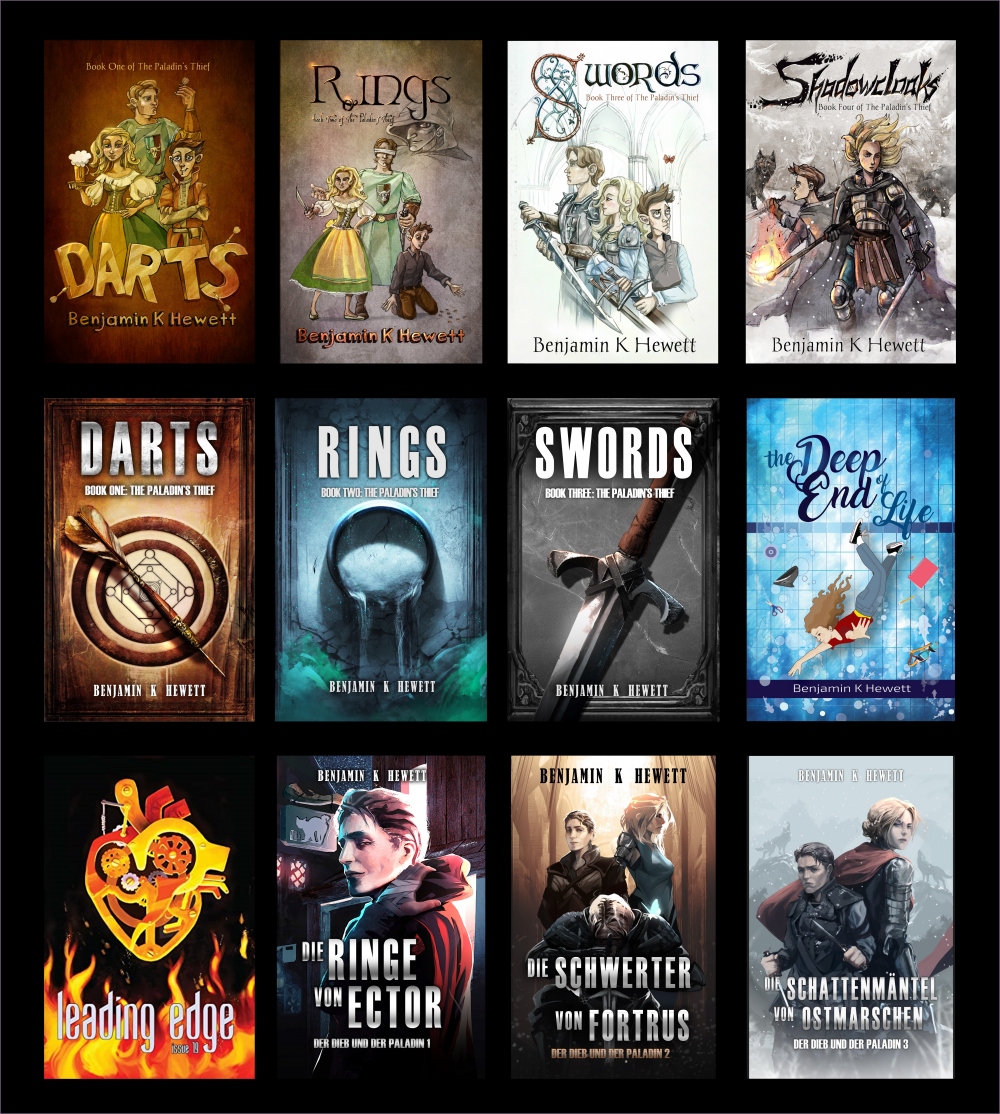
Do you have any interesting writing habits? What is an average writing day like for you?
When my kids were little, I used to write in the car before or after work, 45 minutes or so, because as soon as I walked in the door I was on duty. Now that they’re older, it’s easier, but I find myself burning the candle at both ends (especially during the school year) in order to be present. I try to write for an hour each weekday, and then a couple more on Saturday.
What are you working on right now?
I‘m wrapping up work on a science fiction novel called Plague Runners, and once that’s done I’ll finish a draft of BONES, book 5 in The Paladin’s Thief series. I’ve also got a handful of mixed-genre short stories and fantasy/western novel in the hopper.
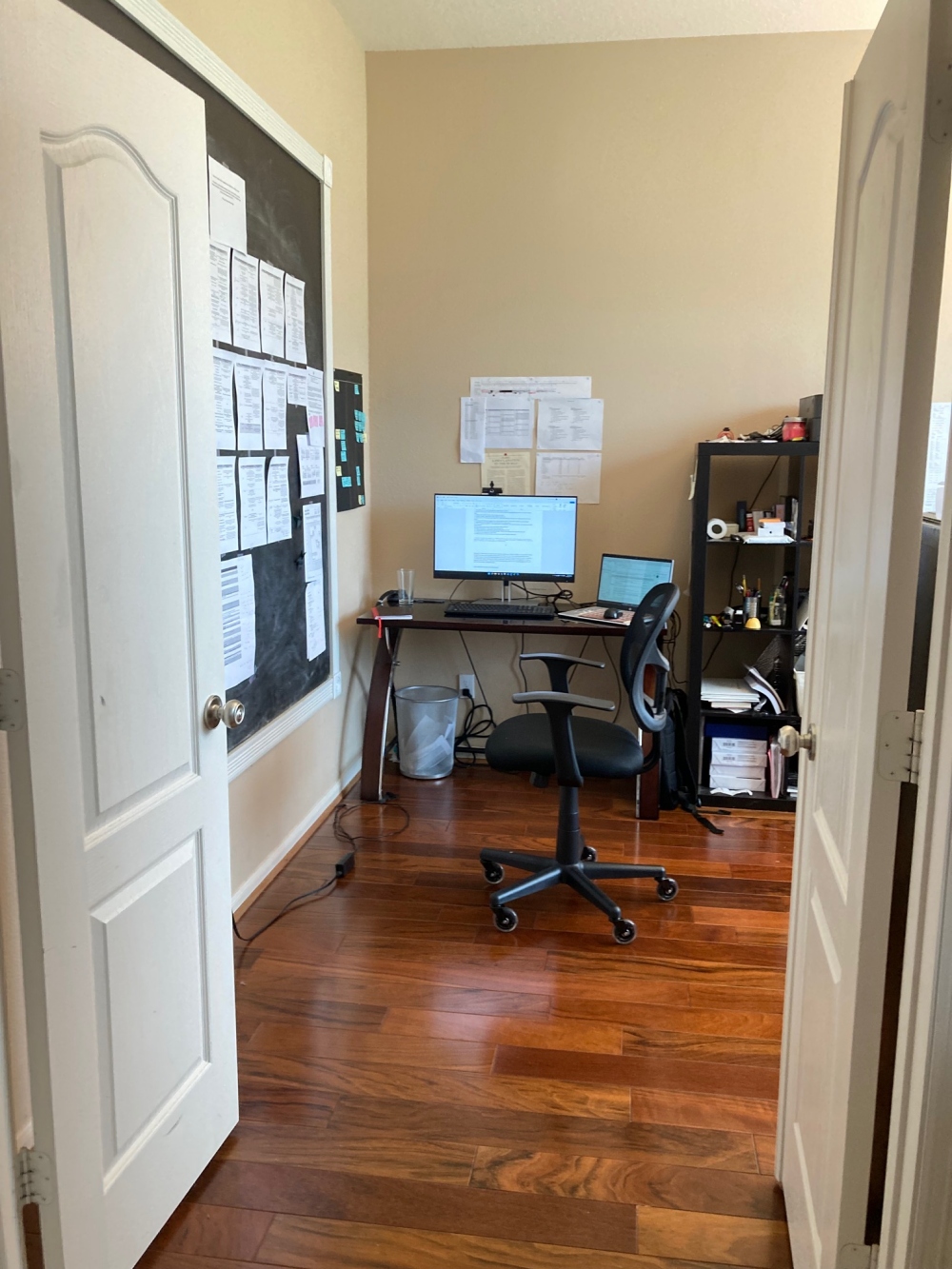
Where can our readers discover more of your work or interact with you?
I’ve got handles for Twitter, Facebook, and Instagram. Right now, I’m on Instagram most, but that could easily change. BKHEWETT.COM has a list of the published books in The Paladin’s Thief series, and links to my other publications.
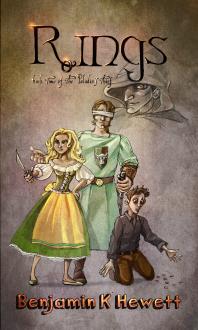
Teacup is an acquisitioner, not a thief. Admittedly, the nuance doesn't play well with the city watch, but as long as the kids get fed Teacup can ignore his nagging conscience. But Teacup steps into the torchlight when he rescues a young knight from assassination. Suddenly, the assassins' guild is hot on his tail, and Teacup's best hope is a breadcrumb trail left by one of the dark guild's own.

